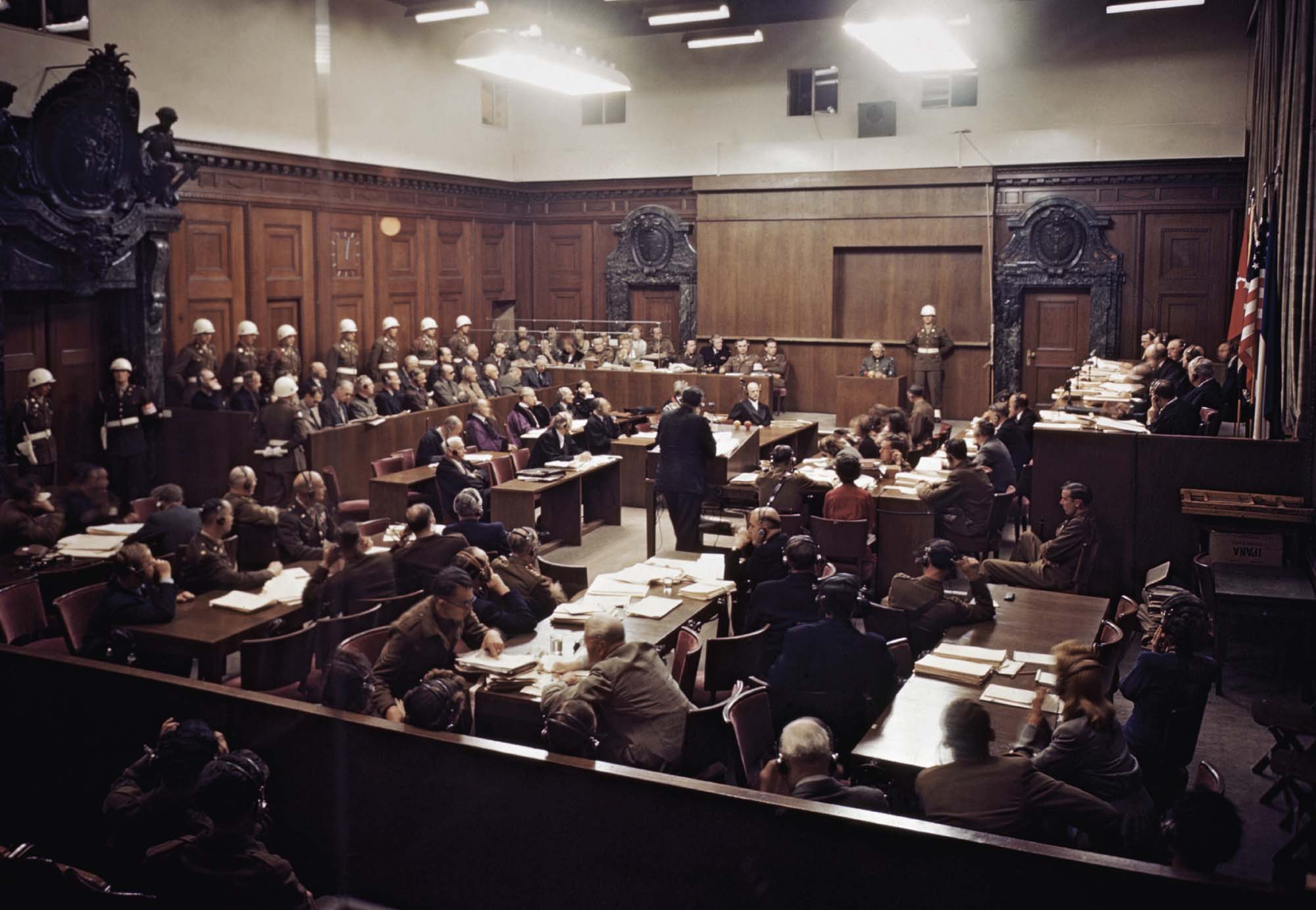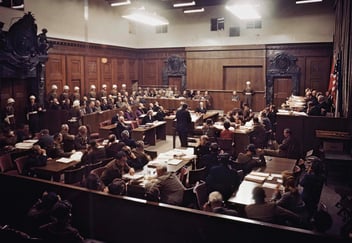It begins, as it always must, with a question that transcends time: What is justice? Justice is not a fleeting abstraction, nor a tool for convenience. It is the ancient and enduring foundation of human civilization, etched into the soul of every individual, predating empires and outlasting the great upheavals of history. Justice, in its purest form, flows from natural law—a force that neither kings can command nor legislatures abolish. It is the silent yet immutable rhythm of the universe, binding all creation in its inherent order.
Ahmad sat quietly in the courtroom, a figure as unassuming as the argument he had prepared was profound. The High Court of Malaya had never seen a case such as this, one that reached beyond statutes and jurisdictions, striking at the heart of humanity’s shared existence. This was not merely a legal dispute; it was a reckoning with the forces seeking to redefine life itself. It was, as Ahmad declared, “humanity on trial.”
The Foundations of Natural Law
Natural law is not the invention of philosophers or theologians. It is not the product of human imagination or the result of social contracts. It exists independently, an ever-present reality written into the fabric of existence. In the tradition of great thinkers—from Aristotle to Aquinas and from Locke to modern constitutionalists—it has been understood as the universal principle that governs the moral and legal order of life.
“It is the law of the Creator,” Ahmad declared in his affidavit. “It is deen al-fitrah—the law of our primordial state, untouched by human corruption and aligned with the natural harmony of creation.”
This law is a reflection of three unyielding truths: the sanctity of human dignity, the equality of all souls, and the fundamental responsibility to act justly. These truths resonate across cultures and faiths, transcending the confines of any one society. They are, as Ahmad reminded the court, “not privileges bestowed by rulers, but rights that exist by virtue of our existence.”
But the courtroom was not merely a place for theoretical musings. Ahmad’s case rested on the claim that these principles were under siege. He pointed to a world consumed by technological ambition, where the frameworks of natural law were being replaced by artificial constructs: biometric currencies, surveillance states, and a global technocracy intent on erasing the boundaries of humanity itself.
A Trust Betrayed
At the heart of Ahmad’s argument lay the concept of trust—a sacred bond between humanity and the systems created to protect it. This trust, he contended, had been profoundly violated. He cited the rise of the Fourth Industrial Revolution, the Great Reset, and Stakeholder Capitalism as evidence of this betrayal. These movements, he argued, masqueraded as progress but were, in reality, tools of control designed to strip individuals of their inherent rights.
“Natural law,” Ahmad asserted, “is not a convenience to be discarded when it becomes inconvenient for the powerful. It is the foundation upon which all just societies must stand.”
Drawing upon Islamic jurisprudence, Ahmad explained the principles of fitrah, the natural covenant between humanity and its Creator. He invoked Surah Al-Mumtahina (60:9), which commands the rejection of oppression, and Surah Al-Maidah (5:8), which calls for unwavering justice. These teachings, he argued, were not relics of the past but living principles demanding accountability from those who wield power.
The Modern Assault on Natural Law
Ahmad described the assault on natural law as a calculated effort to redefine humanity itself. The agendas of the Great Reset and 4IR, he argued, sought to replace the natural order with an artificial one. The human body, once sacred, was being transformed into a vessel for technology. Digital currencies tied to biometric data, surveillance systems disguised as safety measures, and policies demanding conformity over freedom—all, Ahmad claimed, were violations of the trust humanity was obligated to uphold.
“What does it mean to be human in this new order?” he asked, addressing the court directly. “When our value is reduced to algorithms and data points, when our freedoms are conditioned upon compliance with systems we do not control, is it not the essence of our humanity that is under attack?”
The courtroom was silent, the weight of his question pressing upon all present. Ahmad continued, painting a vivid picture of the future he sought to prevent: a world where individuality was sacrificed for efficiency, where justice was redefined by the calculus of power, and where the natural dignity of human life was traded for technological dominance.
Justice on Trial
Ahmad’s case was not a solitary effort. He presented himself as a trustee, acting on behalf of all Malaysians and, by extension, all of humanity. He drew upon the Malaysian Constitution, emphasizing its commitment to life, liberty, and dignity. He leaned on principles of trust and justice inherent in Islamic law, invoking the spiritual and moral obligations that bind individuals and societies alike.
His evidence was meticulous. He brought forth scholarly treatises, historical precedents, and the testimonies of experts, each building upon the claim that humanity was at a crossroads. Ahmad’s argument was clear: to accept the agendas of the Great Reset and 4IR without question was to abandon the principles that make us human.
Yet, it was not just the facts that made his case compelling. It was his ability to humanize the issues. He spoke of the farmer who could no longer trade without digital verification, the mother excluded from resources because of an algorithm, the child whose identity was reduced to a barcode. These were not hypothetical scenarios—they were the lived realities of a world that had strayed from justice.
Reclaiming the Natural Order
In his closing remarks, Ahmad called upon the court to recognize the gravity of its role. “This is not merely about policies or programs,” he said. “It is about the soul of humanity. It is about reclaiming the fitrah, the natural order that binds us to justice, dignity, and freedom.”
He reminded the court that the principles of natural law were not antiquated ideals but enduring truths. They demand resistance to tyranny, the rejection of oppression, and the preservation of harmony. They require us to act not for the convenience of the present but for the sanctity of the future.
As the proceedings adjourned, the courtroom remained charged with a sense of urgency. This was not merely a legal battle; it was a call to action—a reminder that justice, like natural law, is not static. It is a living force, one that requires constant vigilance, courage, and faith.
Conclusion
Natural law is more than a philosophical concept; it is the foundation of what it means to live justly. It is the compass that guides societies through the storms of history, ensuring that power does not overshadow principle. Ahmad’s case is a testament to this truth. It is a declaration that humanity’s essence cannot be traded for convenience or controlled by systems that betray the very trust they are meant to uphold.
In the chapters that follow, we shall explore how these truths manifest in the face of modern challenges. For now, let us carry forward this understanding: that justice is not the product of systems, but the reflection of a deeper, universal order—one that every generation must fight to protect.




